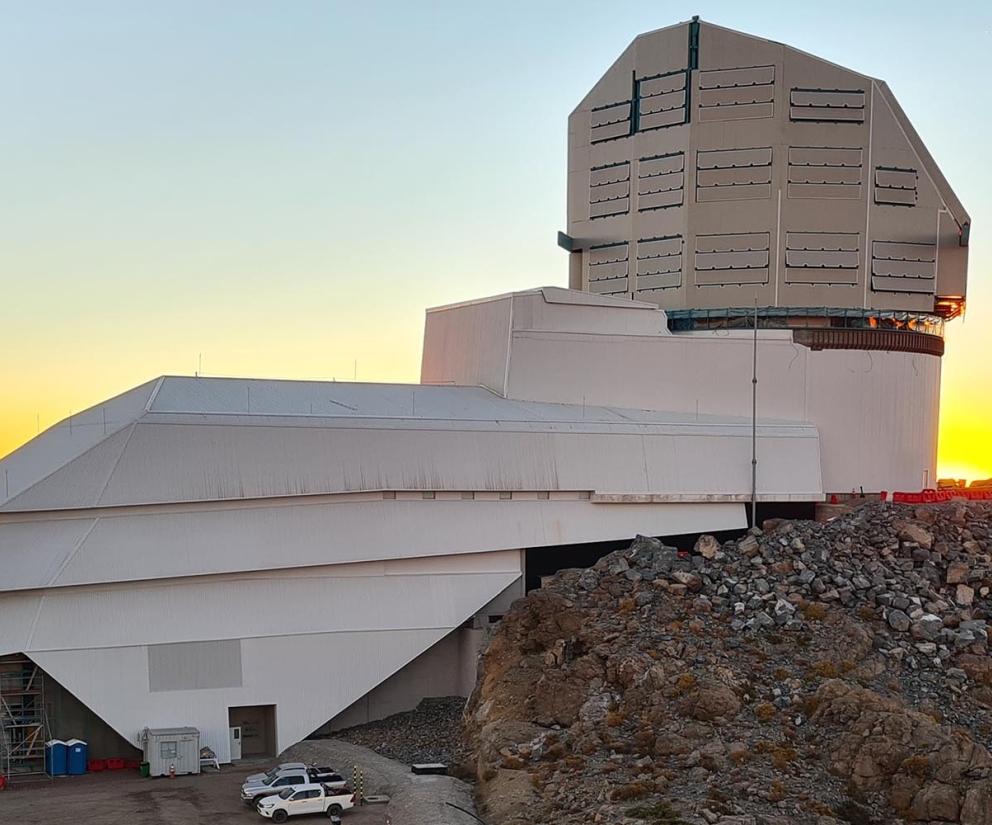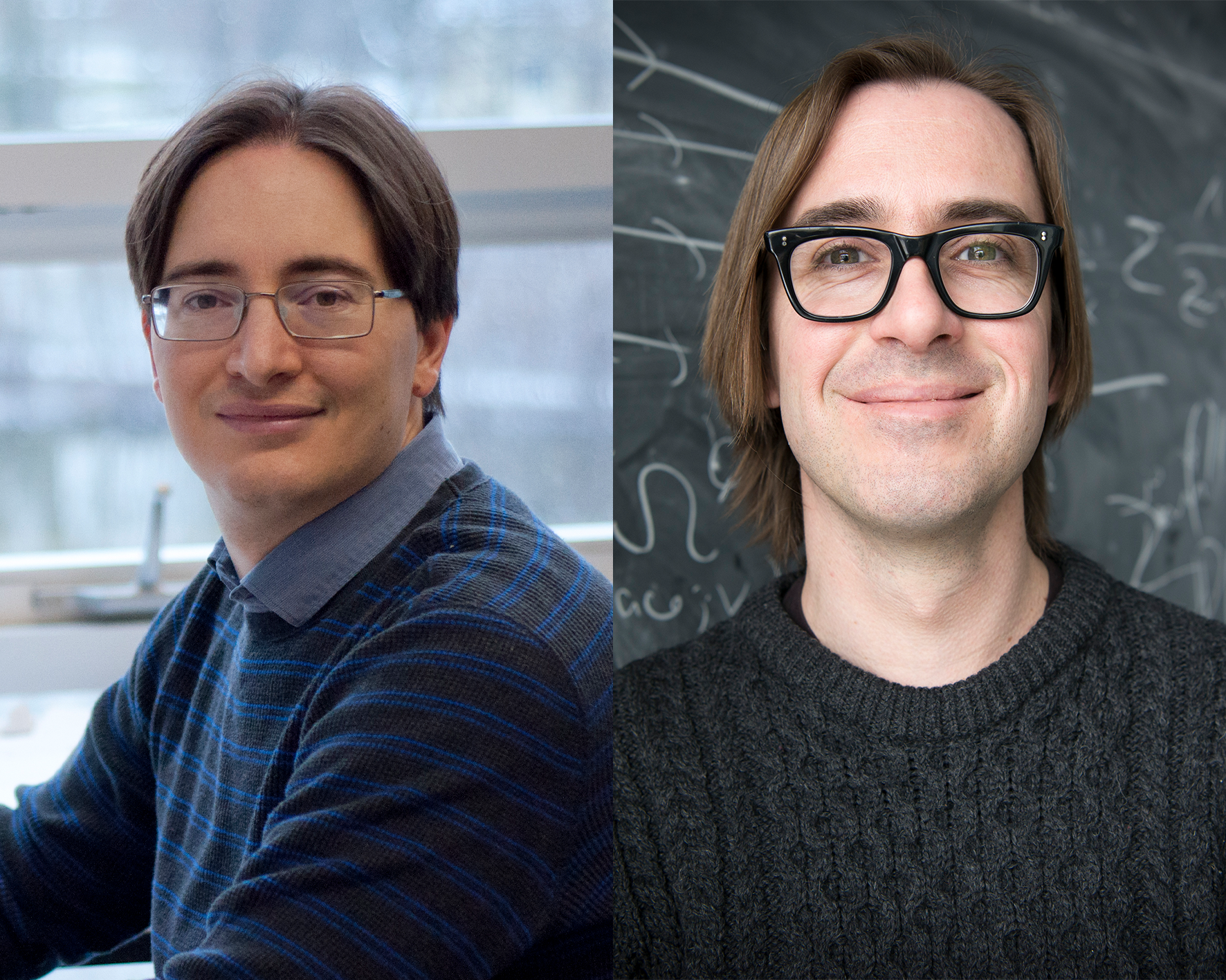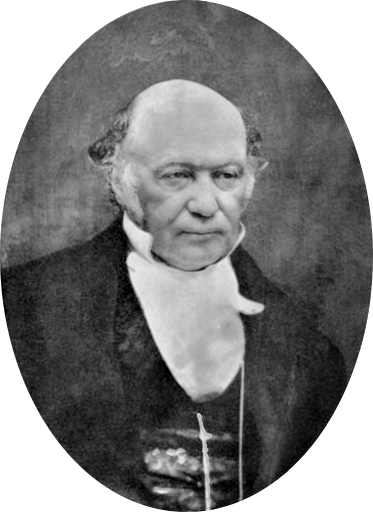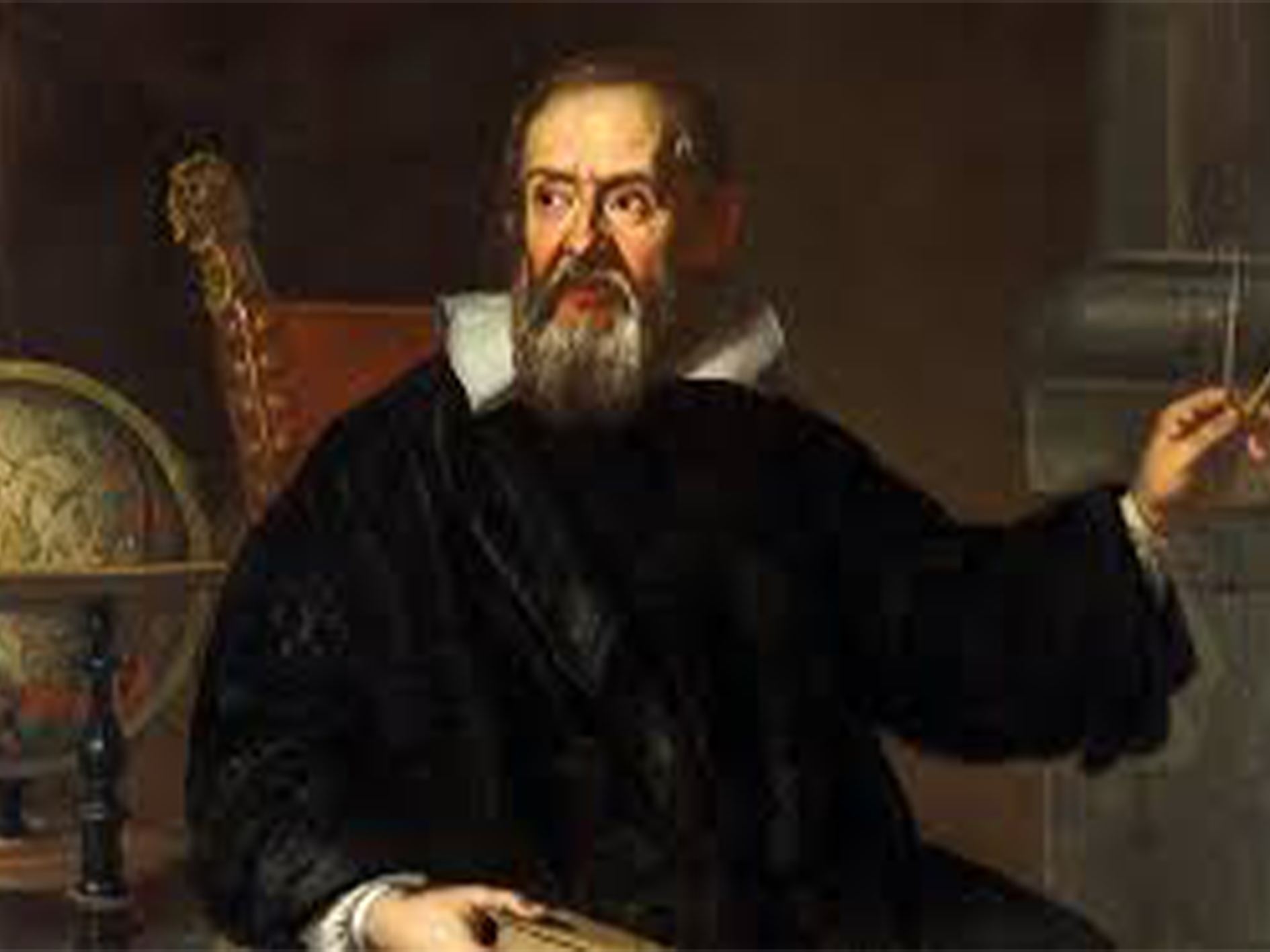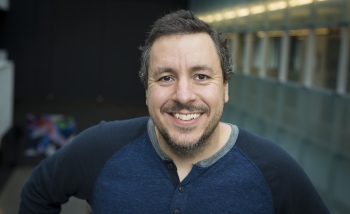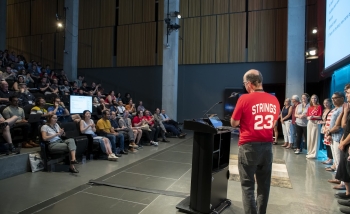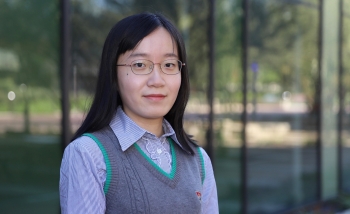Perimeter partners with Krembil Foundation to create two new chairs
A $4 million investment made by the Krembil Foundation – matched by $4 million from Perimeter Institute – will support the two Chairs. Each Chair is named for a pioneer in theoretical physics:
- The Krembil Foundation Galileo Galilei Chair in Theoretical Physics at Perimeter Institute
- The Krembil Foundation William Rowan Hamilton Chair in Theoretical Physics at Perimeter Institute
Known for its leadership support of medical research, education, and social services projects, the Krembil Foundation also believes that investments in frontier science at Perimeter will help to build a more knowledgeable and prosperous future for all.
“We see this as a smart investment in something that will be profoundly advantageous to all Canadians and the world – not just an economic investment, but an intellectual, educational, and cultural one as well,” said Mark Krembil, President of the Foundation.
“Perimeter is an exceptional institute, and these two new Chairs will enable some of the brightest young theoretical physicists in the world to maximize their research. So it’s very exciting for our Foundation to be part of such an innovative Chairs program and support the kind of deep thinking and discovery it makes possible.”
Perimeter Institute Director Neil Turok said, “We are extremely grateful to the Krembil Foundation for this investment in Perimeter and the future of theoretical physics. Their contribution is a major boost to our unique public-private partnership supporting breakthrough research.”
Perimeter has recruited a pair of exceptional young scientists as the inaugural chairholders:
Kevin Costello, one of the world’s top young mathematicians, from the Mathematics Department at Northwestern University, will take up The Krembil Foundation William Rowan Hamilton Chair in Theoretical Physics at Perimeter Institute.
“What’s unique about Kevin Costello is that he’s a great mathematician who goes much more deeply into the physics than other outstanding mathematicians in similar areas do,” said Edward Witten, a Fields Medal recipient based at Princeton’s Institute for Advanced Study. “There’s every prospect that bringing Kevin to Perimeter will add a strong new dimension that brings an outstanding mathematics effort into synergy with the physics research.”
Davide Gaiotto, one of the world's top young mathematical physicists, was recruited from Princeton’s Institute for Advanced Study. He will hold The Krembil Foundation Galileo Galilei Chair in Theoretical Physics at Perimeter Institute. Gaiotto’s conceptual advances in our understanding of quantum fields earned him the $100,000 New Horizons in Physics Prize in 2013 and are “opening the way to more powerful mathematical descriptions of particles and forces in the universe,” said Perimeter Director Neil Turok.
“Kevin Costello and Davide Gaiotto are brilliant young theorists who are discovering new ways of formulating our most fundamental description of reality,” added Turok. “To have them appointed as the inaugural Hamilton and Galileo Chairs is a real coup. We expect a very strong research effort in mathematical physics to develop around them, generating exciting and important new developments in the field.”
More about the Perimeter Chairs Program
The recruitment of Costello and Gaiotto represents a significant advance for Perimeter's effort to assemble world-leading talent focused on some of the deepest questions in physics. The two new Chairs build upon the previous establishment of the BMO Financial Group Isaac Newton Chair in Theoretical Physics at Perimeter Institute (held by top condensed matter theorist Xiao-Gang Wen, recruited from MIT in 2011), and the Mike and Ophelia Lazaridis Niels Bohr Chair in Theoretical Physics at Perimeter Institute (held by Perimeter Director Neil Turok, recruited from Cambridge in 2008).
Perimeter Institute is in the process of creating and recruiting another two Chairs, which will soon bring the number of Chairs at the Institute to six. The Institute’s long-term goal is to create an unmatched sequence of research Chairs, each named for one of history’s greatest physicists. The Perimeter Research Chairs are envisioned to become among the most attractive research positions in theoretical physics worldwide.
The two new Krembil chairholders are both in their thirties, but are already renowned in their field. Costello's and Gaiotto's appointments as chairholders will provide them with the resources, research freedom, and collaborative opportunities they will need to make groundbreaking discoveries in mathematical physics.
“I’m very excited to join Perimeter, as it’s one of the few institutes in the world where the boundaries between disciplines such as mathematics and physics are being broken down,” said Costello. “My work is at the interface of mathematics and physics, and Perimeter is a place where the excitement about this kind of research is evident.”
Gaiotto says he is “humbled” to hold a chair named after Galileo and hopes to conduct the kind of leading-edge research that exemplifies the namesake. “Perimeter Institute provides a wonderful environment for a researcher to work, grow, and interact with many interesting fields in theoretical physics,” said Gaiotto. “The Galileo Chair complements and strengthens the resources at Perimeter and will allow me to build a strong team in quantum field theory and mathematical physics.”
The importance of mathematics to physics
Mathematics is the common language to all branches of science explored at Perimeter – cosmology, quantum information, strong gravity, particle physics, quantum matter, and more – and is therefore vital in tackling some of the biggest questions about the origins, structure, and future of our universe. With this new investment in mathematics and mathematical physics, Perimeter is significantly strengthening its efforts to become a world-leading centre. In little over a decade since its creation, Perimeter is well on the way to fulfilling this ambitious goal, as demonstrated by a recent ranking of research institutions worldwide.
Scientific excellence ranking
A state-of-the-art study titled “Mapping Scientific Excellence” – whose lead author is based at the Max Planck Society in Germany – ranks Perimeter fifth in the world among physics and astronomy centres and second among theoretical physics institutes – just behind Princeton’s Institute for Advanced Study, where Einstein worked.
This new, independent study is distinguished by being based on an objective measure of citation impact, employing the world’s largest scientific literature database. It demonstrates that Perimeter is becoming a major focal point for basic research and is a "rising star on the world terrain," as described by renowned theoretical physicist and Fields Medal-winner Maxim Kontsevich. This new ranking, along with the two new Chairs enabled by the Krembil Foundation, adds to Perimeter’s momentum in tackling some of the biggest questions in science that will advance human knowledge and ingenuity for generations to come.
"This all makes so much sense to us as a foundation,” said Robert Krembil, Founder of the Krembil Foundation. “Perimeter’s vision, leadership, and forefront research is exemplary. When you put that all together, you see that Ontario and Canada can lead theoretical physics and innovative thinking in the world. Who wouldn't want to get involved with an endeavour like that?"
The Chairholders: Costello and Gaiotto
Kevin Costello is an exceptional young mathematician who works on some of the most challenging problems in theoretical physics and their relation to leading-edge mathematics. He recently authored Renormalization and Effective Field Theory, a pathbreaking monograph introducing powerful new mathematical tools into the theory of quantum fields. Born in Ireland, Costello is a 2003 graduate of Cambridge University and a professor of mathematics at Northwestern University. He is highly regarded by his more senior peers. Two of the most important mathematical physicists alive – Maxim Kontsevich and Edward Witten – strongly endorsed his appointment. “This appointment will definitely add a very strong new dimension to the study at Perimeter of the math and physics of quantum field theory,” said Witten. Kontsevich described both Costello and Gaiotto as "excellent choices" as research Chairs and said Costello’s most recent work in particular is “absolutely amazing.”
Davide Gaiotto is widely regarded as one of the world’s most brilliant young quantum field theorists. The Italian-born scientist received his PhD from Princeton University in 2004 before becoming a postdoctoral fellow at Harvard University from 2004 to 2007, and a long-term Member at the Institute for Advanced Study at Princeton from 2007 to 2011. Gaiotto has achieved important conceptual advances in our understanding of the behaviour of strongly coupled quantum fields, within a unified framework known as supersymmetry. He was awarded the 2011 Gribov Medal of the European Physical Society and the 2013 New Horizons in Physics Prize from the Fundamental Physics Prize Foundation. Davide is an exceptionally creative young theoretical physicist,” said Perimeter Director Neil Turok. “With Davide joining Perimeter, we have one of the strongest collections of researchers worldwide studying what I would call ‘high-powered’ quantum field theory.”
The namesakes: Hamilton and Galileo
William Rowan Hamilton invented the formalism in which all modern physics is now expressed. In the 1830s he reformulated Newtownian mechanics as a “least action principle,” laying the mathematical foundations for the quantum revolution in the early 20th century. An Irish physicist, astronomer, and mathematician, Hamilton’s work has proven indispensable to the study of field theories, such as electromagnetism, hydrodynamics, and general relativity. His greatest contribution to pure mathematics was the discovery of quaternions, a set of hypercomplex numbers now widely used in quantum physics as well as computer graphics. The fundamental formulae for quaternions came to him as he crossed Broome Bridge on his way to a meeting of the Royal Irish Academy. He later wrote that “an electric circuit seemed to close, and a spark flashed forth” as he etched the formula into a stone on the bridge. A plaque now marks this exact spot to commemorate his discovery.
Galileo Galilei first brought mathematics together with experiment to found
the discipline of modern physics as we now know it. An Italian physicist, mathematician, astronomer, inventor and philosopher, Galileo, perhaps more than any other person, was responsible for the birth of modern science. His contributions to observational astronomy include the telescopic confirmation of the phases of Venus, the discovery of the four largest satellites of Jupiter, and the observation and analysis of sunspots. His formulation of inertia, the law of falling bodies, and parabolic trajectories inspired Newton to discover his universal laws of motion and gravitation. Galileo’s discoveries with the telescope revolutionized astronomy and paved the way for the acceptance of the Copernican heliocentric system, which placed the Sun, not the Earth, at the centre of the universe. When the Catholic Church condemned heliocentrismin 1632, Galileo was tried by the Inquisition, found guilty of heresy, and spent the rest of his life under house arrest.
About PI
Perimeter Institute is the world’s largest research hub devoted to theoretical physics. The independent Institute was founded in 1999 to foster breakthroughs in the fundamental understanding of our universe, from the smallest particles to the entire cosmos. Research at Perimeter is motivated by the understanding that fundamental science advances human knowledge and catalyzes innovation, and that today’s theoretical physics is tomorrow’s technology. Located in the Region of Waterloo, the not-for-profit Institute is a unique public-private endeavour, including the Governments of Ontario and Canada, that enables cutting-edge research, trains the next generation of scientific pioneers, and shares the power of physics through award-winning educational outreach and public engagement.

